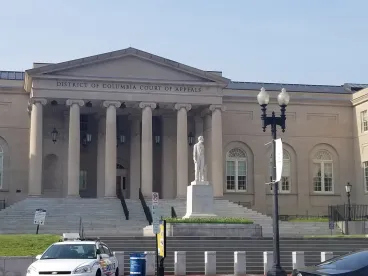The long-awaited Washington, D.C. non-compete and anti-moonlighting law finally went into effect on Oct. 1, 2022. At the end of 2020, the Washington, D.C. Council passed the Ban on Non-Compete Agreements Amendment Act of 2020. The act faced immediate and significant pushback from employers, which led to its implementation date being repeatedly postponed. After public comment and input from employers, Mayor Muriel Bowser signed the Non-Compete Clarification Amendment Act of 2022 into law on July 27, 2022 (the “Amended Act”). While the Amended Act still limits the scope of non-competition agreements in the District, it is more employer-friendly than the previous iteration.
New Prohibitions on Non-Competes
Under the Amended Act, D.C. joins other jurisdictions, such as Illinois and Colorado, in establishing salary-threshold limits on non-competition agreements. Specifically, non-competes are limited to “highly compensated employees,” defined as those employees whose annual compensation earnings as of Oct. 1 are, or are expected to be, $150,000 or more, or $250,000 or more in the case of physicians. “Compensation” for the purposes of the Amended Act includes hourly wages, salary, bonuses or cash incentives, commissions, overtime, vested stock, and other regular or irregular payments.
The Amended Act specifies that restrictions on non-competes only apply to employees (a) who spend or are reasonably anticipated to spend 50% or more of their working time in DC; or (b) “[w]hose employment for the employer will be based in the District and the employer reasonably anticipates that the employee will regularly spend a substantial amount of his or her work time for the employer in the District and not more than 50% of his or her work time for that employer in another jurisdiction.”
Under the Amended Act, “Non-Competition Agreement” is defined as any written contract between an employer and employee that limits an employee’s ability to be compensated for outside work or operate their own business. There are, however, express exceptions for agreements entered into for the sale of a business, agreements restricting disclosure, access to, or use of the employer’s confidential or proprietary information, and agreements providing a long-term incentive to the employee.
Additionally, the Amended Act permits employers to utilize anti-moonlighting provisions that would restrict outside compensation for employment or the ability of a current employee to operate a business, so long as the employer reasonably believes that the aforementioned work could: (1) lead to the employee disclosing the employer’s proprietary or confidential information, (2) violate rules relating to conflicts of interest propagated by the employer, industry, or profession, (3) create a “conflict of commitment” for employees of accredited higher education institutions, or (4) impair the employer’s ability to comply with the laws of D.C. and the federal government, or with a grant or contract.
Applicability to Past and Future Agreements and Penalties for Non-Compliance
Although the Amended Act does not apply retroactively, employers must comply with the law for any agreement entered into on or after October 1, 2022. An employer who retaliates against an employee that refuses to agree to or comply with an agreement that is noncompliant with the Amended Act will be subject to fines and penalties.
Employers that fail to comply with the Amended Act may be subject to fines and penalties between $350 to $1000 dollars. Additionally, employees may file complaints seeking penalties ranging from $500 to $3,000 depending on the severity and number of violations.
Notice Requirements
Under the Amended Act, Employers must provide employees with 14 days written notice of the requirement to enter into the non-compete before the start of employment, or, alternatively, if the individual is already an employee, at least 14 days before the employee is required to sign the agreement.
Further, when providing the proposed non-compete to an employee, an employer must also provide a statutory notice containing the following language:
The District’s Ban on Non-Compete Agreements Amendment Act of 2020 limits the use of non-compete agreements. It allows employers to request non-compete agreements from highly compensated employees, as that term is defined in the Ban on Non-Compete Agreements Amendment Act of 2020, under certain conditions. [Name of employer] has determined that you are a highly compensated employee. For more information about the Ban on Non-Compete Agreements Amendment Act of 2020, contact the District of Columbia Department of Employment Services (DOES).
Enforceability of Non-Competes Going Forward
In order to ensure compliance and enforceability, employers should clearly delineate and reasonably tailor the scope of restricted activities and geographic limits on the non-compete covenant. Specifically, the covenant should include “[t]he functional scope of the competition restriction, including what services, roles, industry, or competing entities the employee is restricted from performing work in […].” Likewise, non-competes may not extend beyond 365 days from separation (or 730 days in the case of a physician, as defined under the Amended Act). Additionally, employers should consider citing to and mirroring language from the Amended Act in their agreements, including in relation to highly compensated employees.
Next Steps
D.C. employers and other employers that may have remote workers in D.C. should immediately consult with counsel to determine steps needed to comply with the Amended Act. Employers should consider updating employment and other agreements to ensure restrictive covenants will be enforceable, and to avoid potential fines and penalties for non-compliance with the new law. Additionally, employers should carefully review where their remote workers are operating, and how an increasingly-remote workforce might implicate the Amended Act.
Rose Collins also contributed to this article.





 />i
/>i

